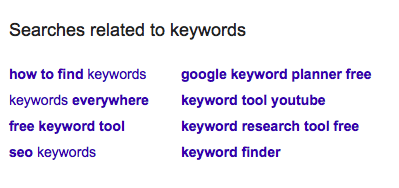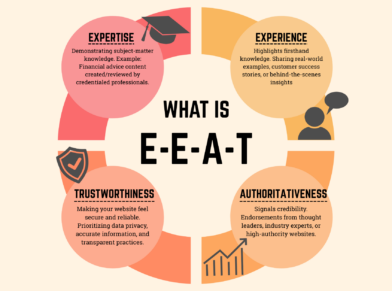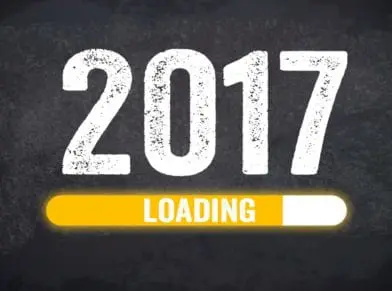KEYWORD RESEARCH THAT WORKS: THE Q4 2019 EDITION

Mom used to say, “it’s not what you say, but how you say it.” When it comes to effective keyword strategy, it’s both.
Keywords have long been the building blocks of any solid SEO foundation, but the tactics that reliably drive organic traffic have changed considerably.
Today, if you’re looking to tap into the phrases your customers are actually searching for, you’ll not only have to optimize your site’s content with the right keywords, you’ll probably need to do so for hundreds of other relevant keywords.
First, you have to find them.
Whether you’re trying to get certain key pages to rank higher in SERPs, increase your web traffic, or both, this 2019 guide to keyword research can help.
The Basics of Keyword Research and Search Intent
We’re sure you’re anxious to start finding valuable keywords to add to your website, but let’s start at the beginning.
Keywords are individual words or short phrases that internet users plug into a search engine. Let’s take the most searched keyword on Google for example. Someone might type in the keyword “Facebook” or a phrase like “how do I get more followers on Facebook?” Regardless of what set of words are strung together, the most important aspect of finding the right ones comes down to one thing: search intent.
Search intent, the ultimate goal of the searcher, is different from search volume, which is typically expressed as the number of searches in a month. Keyword intent generally falls into one of four categories:
- Informational: The searcher might have a problem or query they’re looking to solve. Generally these are expressed as “what’s” or “how to’s.” For example, “how to rank higher in Google” would be an informational search intent.
- Navigational: As it sounds, navigational search intent helps the user get to a specific site. For instance, if you were attempting to log in to LinkedIn, you’d likely type that branded inquiry into the search engine to direct you there.
- Commercial investigation: If a user wants to compare two things (SEO vs Paid Advertising) or find the, “best keyword research strategies,” they’re making an investigation intent.
- Transactional: With a transactional intent, someone is ready to take action. Usually, this involves making a purchase or downloading a piece of marketing content.
Brainstorming Keywords
Guessing the best keywords for your site is never a good idea. At the same time, you definitely need a solid jumping-off point, and brainstorming some possible keywords could lead you to the relevant, traffic-increasing phrases you’re after.
As you begin to brainstorm, start with a few basic questions to get the ball rolling:
- What would someone typing this keyword expect to come up?
- What keywords are most relevant to your business, industry, etc.?
- What questions or problems is a user mostly likely to have that your brand can solve?
- What types of content would someone searching this keyword be most interested in?
- What other terms might a customer use to describe what you do? (ie: Digital marketing agency vs. online marketing firm)
Remember that even similar phrasing might have very different intents so start by coming up with as many variations, associated words, and related search topics as you can and test them individually later. Keep a spreadsheet of your ideas and different keyword iterations to help you keep track.
How to Find Long-tail Keywords
Once you have a general idea of the main keywords you’ll be targeting in your copy and content, you’ll want to build on them with long-tail topics.
Despite what the name suggests, long-tail keywords don’t improve your rank and direct web traffic to your site based on their length alone. Instead, these search queries are high in search demand despite their unimpressive search volume. This means less competition for these highly targeted phrases.
Perform some Google searches with the keywords you identified in the step above, then use them to discover additional long-tail keywords by looking critically at the “searches related to” field at the bottom of the page.

Tools to Help with Keyword Research
Not sure how to find keywords on your own? There are several reliable paid and free keyword tools that can help.
Three of our favorites include:
- Google Keyword Planner. The gold standard in keyword research.
- Keywordtool.io. To spy on what types of questions people are searching for.
- Keywords everywhere. Simply download the Chrome or Firefox extension to see how often a particular word has been searched for in a given month.
Dad used to say, “Say what you mean, and mean what you say.” Though they may not have known it at the time, your parents actually gave you some sage advice when it comes to executing an effective keyword strategy. Employ a little old wisdom and new-age advice, and you’re sure to have traffic streaming in from all angles.
Need some help keying in on keywords? We’ll give them something to talk about.






















